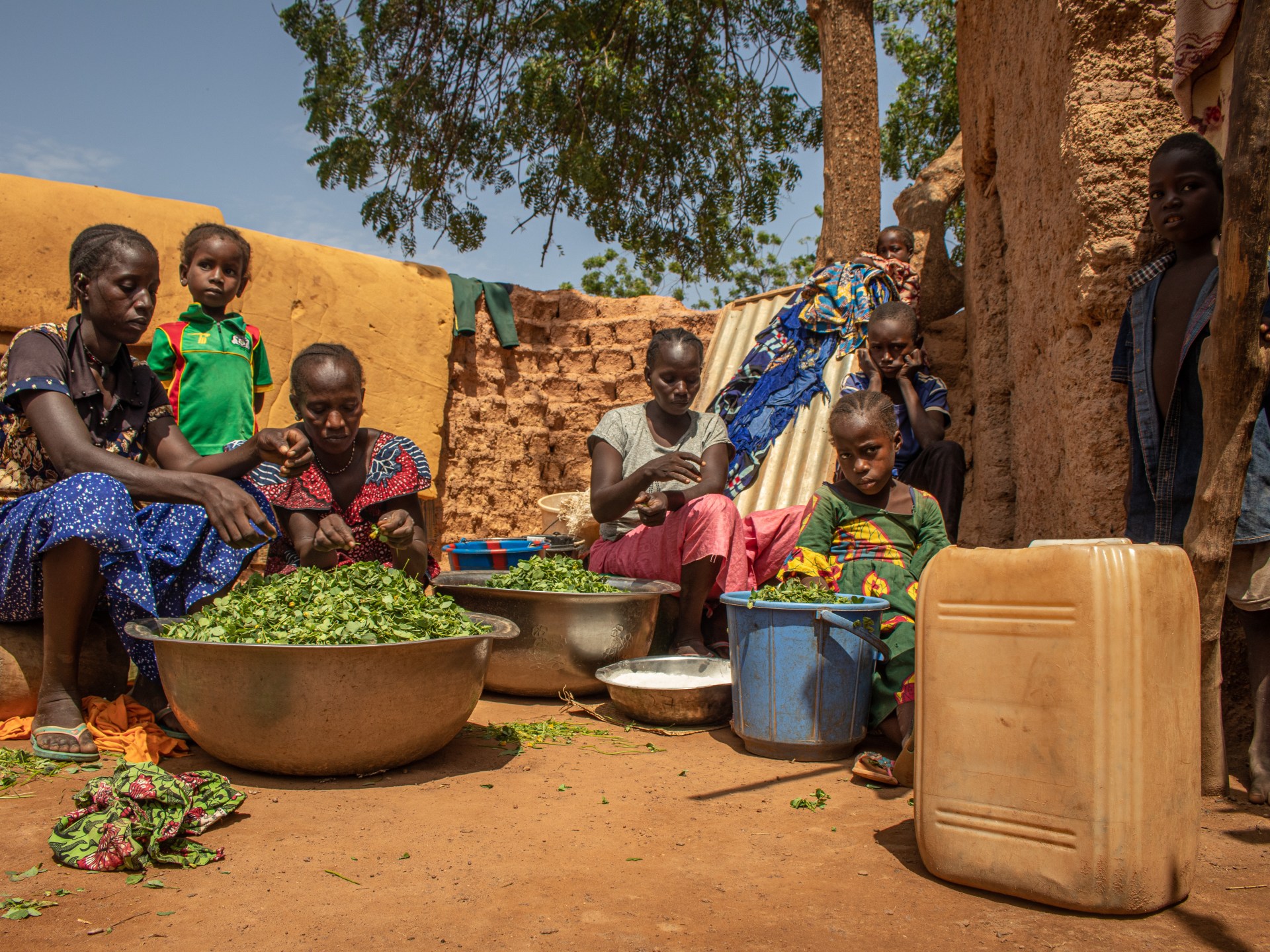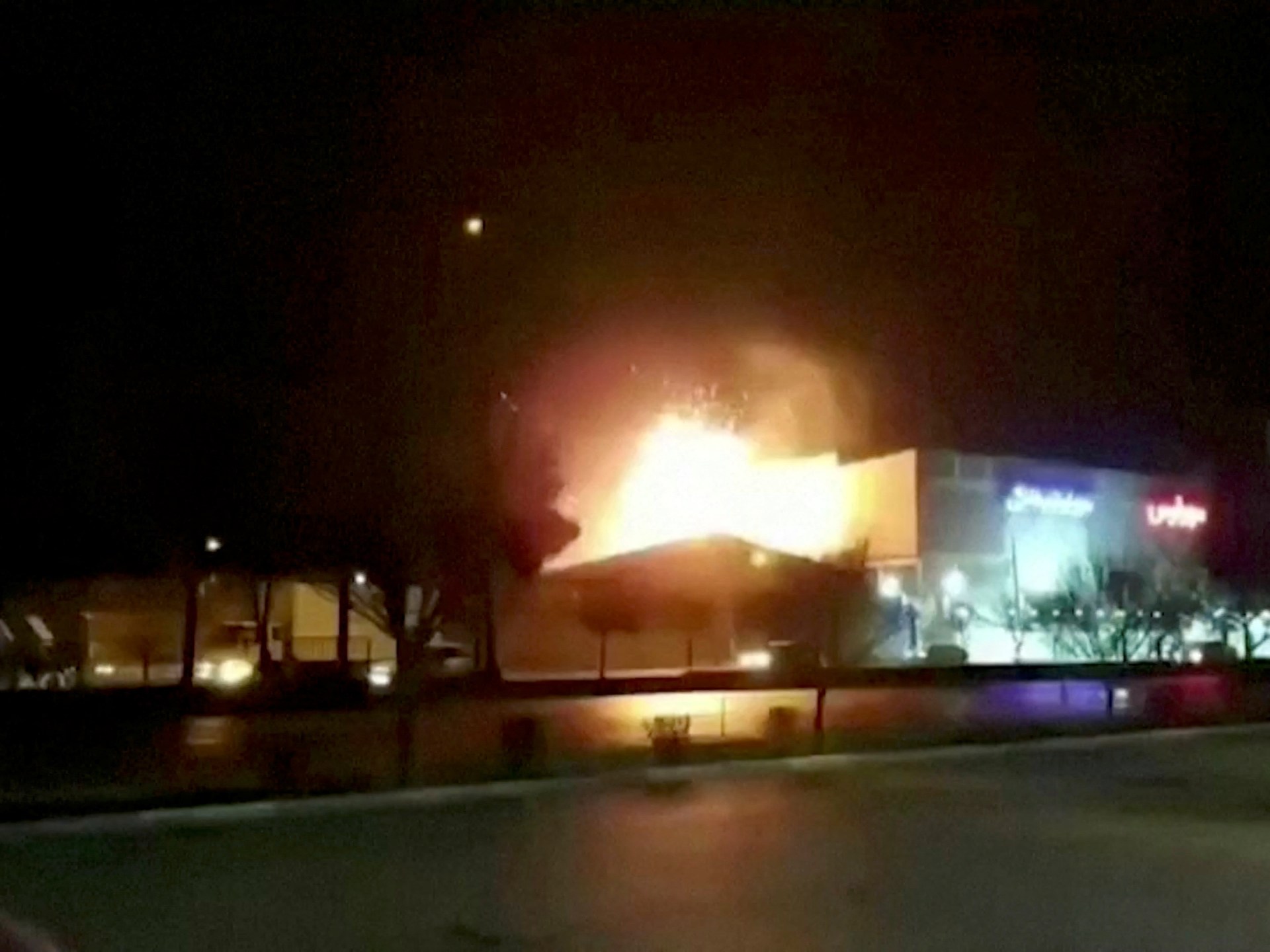Forced to eat leaves: Hungry and besieged in Burkina Faso | Humanitarian Crises
Every day in Djibo – a dry and dusty town in northern Burkina Faso – residents walk around hoping to spot a distribution of food aid, or at least some cereals to buy.
The town used to host a vibrant market, especially for livestock. It is now empty of everything — cereals, vegetables, meat, and merchants.
“It’s been four days with nothing to eat,” says 76-year-old Amadou*, who was born in Djibo and says he has never seen anything like the current crisis. He now hosts 40 internally displaced people in his own courtyard, as fighting has entrapped some 370,000 people in the town.
Located at the intersection of trade routes between Mali, Burkina Faso and Niger, since 2019 Djibo has also been a hotspot of the conflict engulfing Burkina Faso. But the current blockade is the worst the country has seen, aid groups and locals say.
Since February, non-state armed groups have encircled the town and planted explosives along the main access roads, causing the deaths of at least 35 civilians. They have also destroyed vital infrastructure including bridges and phone installations, further isolating Djibo from the rest of the country.
With it, traders have stopped going in and out, so fewer supplies are reaching markets. People are also unable to access their farmlands so there has been a fall in local agricultural production, which used to make up roughly half of Djibo’s food consumption.
Resident Douda* used to raise livestock, and when the rains were good, he would also plough his fields and grow several varieties of crops to feed his family. But the crisis has stopped all this. Now he says he has no choice but to let his family eat leaves.
Wild leaf consumption now makes up between 35 to 85 percent of the daily food intake of families in Djibo, according to an October assessment by NGOs and UN agencies.
Women and children take their chances wandering outside of town to pick leaves in the mornings. Back at home, they then boil them with salt, turning the meagre concoction into a meal. Some sell the rest to make a few pennies.
Livestock, one of the main sources of wealth, is something people try to hang on to for as long as they can. But feeding the cattle has become costly in besieged areas, and goats and sheep have lost roughly two-thirds of their value.
Both military and civilian aid convoys have attempted to resupply the town since it was blockaded, but have routinely been targeted, mostly preventing food assistance from reaching those who need it.
Only 100 tonnes of cereals reached the town in September and October combined, according to a recent humanitarian assessment. This was distributed to 6,700 families, but they are a fragment of the population in critical need of assistance.
Djibo’s population has tripled in size since 2019 due to the influx of internally displaced people. Some 270,000 are people who were previously forced to flee from other parts of the country.
Resident Lassana* used to live with his family in Nassoumbou, a town 45km away. Although he is originally from Djibo, he moved away years ago and only returned occasionally when looking for odd jobs. But the growing insecurity brought the family back to his native city for good.
Lassana says that whatever their origin, all civilians now in Djibo must confront the same fate and hardships.
“There is nothing left to eat,” he says. “Whether you are internally displaced or a local, you go hungry.”
*Name changed to protect the person’s safety.





Pingback: 예능 다시보기
Pingback: Kardinal Stick
Pingback: packman disposables official website